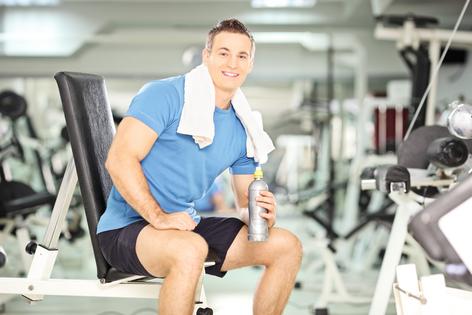6 tips for what to drink during a workout
Published in Health & Fitness
It’s important to consume the right amount of fluids and know the risks of dehydration when you are considering what to drink during a workout. Water or sports drinks can replenish lost fluids and electrolytes. Chocolate milk can provide carbohydrates and protein, making it a good post-workout recovery drink.
More than 60% of your body is made up of water. You can lose quite a bit of water when you work out. Drinking water helps your joints and body tissues function, regulates body temperature, and transports nutrients.
1. Choose the right beverage.
The simplest solution is sometimes the best, and that’s true when choosing a workout beverage. “If you’re an average person, then water after a workout is just fine,” says Nancy Clark, RD, a sports nutritionist and author of “Nancy Clark's Sports Nutrition Guide Book.”
Opt for chocolate milk if your workout is more intense and you spend more than three hours at a time doing it. Chocolate milk has sodium and calcium, which you lose when you sweat. It also has carbohydrates to refuel and give you energy. The protein helps to repair any cell or tissue damage.
Sports drinks, coconut water, or other beverages are fine if you do not like milk or water.
2. Consume the right amount.
There is no set amount of water that you should consume during exercise. Clark advised that you “drink to thirst.”
There are ways to calculate your sweat rate. You’ll need to weigh yourself before and after you work out and do a few calculations.
Clark said that you should drink about 8 ounces of water every 15 minutes if you lose a quart of sweat in an hour. A good rule of thumb is to drink 4 to 8 ounces every 15 to 20 minutes during your workout if you want to skip the math and tend to sweat a lot.
3. Do not drink too much.
It’s possible to drink too many fluids, but it’s uncommon. It’s more of a risk during marathons and triathlons. Athletes who consume a lot of fluids (even sports drinks) but not enough sodium can develop a life-threatening condition called hyponatremia.
Hyponatremia symptoms include:
4. Drink before and during exercise.
Clark recommended drinking fluids before you even begin to exercise, especially if you are doing a workout that requires a lot of stamina. “You need to start drinking about one and a half to two hours before running a marathon,” said Clark.
Drinking fluids during a workout is also a good idea. “We don’t drink enough during exercise, and that puts you in a hole when you finish, and then you have to rehydrate,” said Clark.
5. Pack in some protein and carbohydrates.
Exercising is good for you, but it’s common to incur minor cell or tissue damage after a workout. Proteins can help repair any damage, so rehydrate with a protein-rich drink after an intense workout.
Try drinking flavored milk as a fluid replacement.
6. Know the risks of dehydration.
Many complications can result from not drinking enough water.
Other risks of dehydration include:
(Health delivers relevant information in clear, jargon-free language that puts health into context in peoples’ lives. Online at www.health.com.)
©2025 Dotdash Meredith. All rights reserved. Used with permission. Distributed by Tribune Content Agency, LLC.










Comments